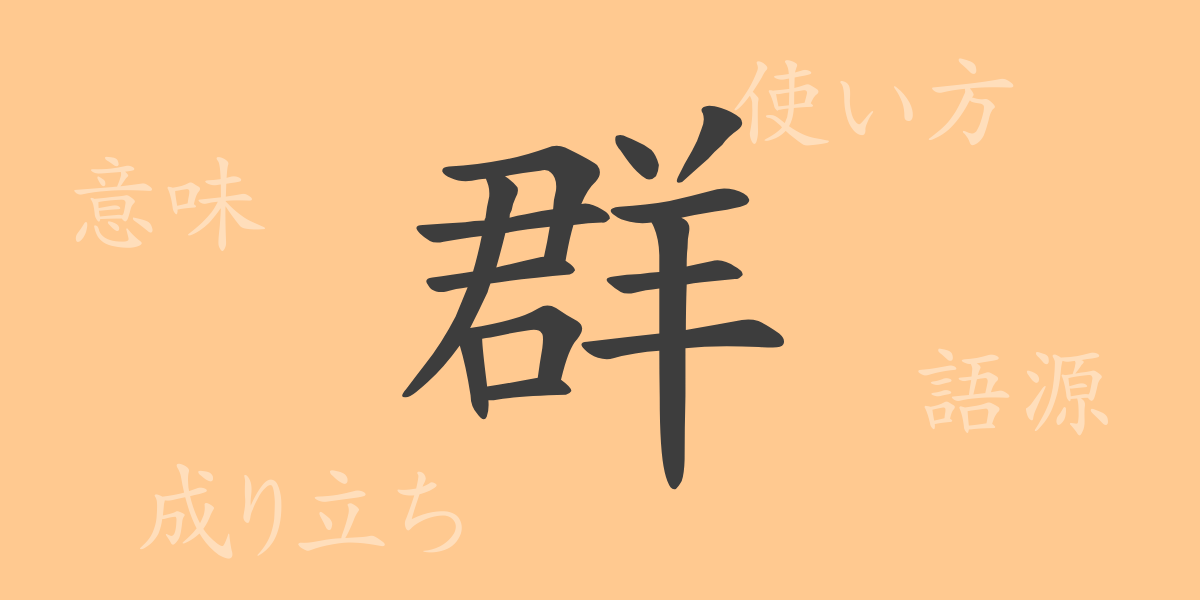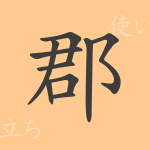The Japanese language contains numerous kanji characters with profound meanings, and among them, “群(ぐん)” is particularly fascinating. Representing groups or large numbers, this kanji is frequently used in our daily lives and society. In this article, we will delve into the origins, meanings, usages, readings, and idiomatic expressions involving “群(ぐん).” Let’s explore this kanji in detail.
Origin of 群(ぐん) (Etymology)
The kanji “群(ぐん)” originated in ancient China, depicting a flock of sheep. Ancient people observed that sheep tend to gather in groups, which led to the use of “群(ぐん)” to represent many things coming together. From this background, “群(ぐん)” came to mean assembly or multitude.
Meanings and Usages of 群(ぐん)
The kanji “群(ぐん)” means “to gather in large numbers,” “group,” or “multitude.” It often refers to the state of people, animals, or things gathering in large numbers. Additionally, it can denote social groups or classes. It is also used in verbs like “群れる(むれる)” and “群がる(むらがる),” which describe the action of gathering.
Readings, Stroke Count, and Radical of 群(ぐん)
The kanji “群(ぐん)” has several readings, varying depending on the context:
- Readings: The on’yomi (Chinese reading) is “グン(ぐん),” and the kun’yomi (Japanese reading) includes “むれる” and “むらがる.”
- Stroke count: The total stroke count for “群(ぐん)” is 13 strokes.
- Radical: The radical for “群(ぐん)” is “羊(ひつじ),” which is used to classify kanji related to sheep.
Idioms, Expressions, and Proverbs Using 群(ぐん)
There are numerous idioms, expressions, and proverbs in Japanese that include “群(ぐん).” Here are a few examples:
- 群衆(ぐんしゅう): Refers to a crowd or a large group of people.
- 群雄割拠(ぐんゆうかっきょ): Describes a state where many powerful groups are competing against each other.
- 群がる(むらがる): A verb meaning to gather or swarm in large numbers.
- 群小を抜く(ぐんしょうをぬく): Means to select an outstanding entity from among many small ones.
Conclusion on 群(ぐん)
The kanji “群(ぐん)” represents groups or multitudes and is used in a wide variety of contexts in Japanese. Its readings and idiomatic expressions are plentiful, highlighting its significant role in Japanese culture and language. Understanding the rich expressive power of this character can further deepen one’s comprehension of the Japanese language.

























